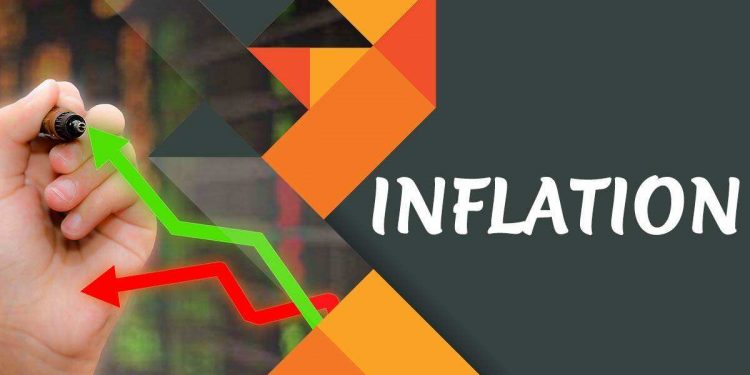According to the National Bureau of Statistics (NBS) in a report titled “Consumer Expenditure Pattern report for 2019,” the typical Nigerian family spends 57% of their income on food.
The cost of food in Nigeria increased 22.28% in May of 2021 compared to the same month in the previous year, again, according to the NBS. Food prices in Nigeria have been on an upward trajectory due to many factors, the primary being the activity of bandits and insurgents in parts of the North, leading to a fall in the supply of food; the border closure also did not help.
In summary, the cost of the biggest expenditure item on the budget of the typical Nigerian is up, so expenses are up.
When effective demand for goods remains strong and prices of such and services rise without a corresponding rise in the goods produced and available, this leads to inflation.
Inflation happens when there is a surplus of supply in the currency used in a jurisdiction, and that surplus cash travels through the economy causing a hike in prices. A currency is valuable when it is scarce. Thus, the difference between $1 (USD) and N1 is scarcity and supply of both currencies. I will explain.
There is more USD printed than Naira by volume and amount, but USD is accepted as legal tender around the world, in Iran, North Korea, and Afghanistan. Ecuador’s legal tender is the US dollar; thus, the US can print $5 trillion and issue as 10-year bonds with very low coupon rates and other nations will buy those bonds or hold USD because they import goods from the US. So, its utility makes it valuable, and its attractiveness makes it scarce.
For example, crude oil is priced in USD, so to buy oil from Saudi Arabia, you need USD. This keeps the demand for US dollars, thereby maintaining its scarcity.
Naira, on the other hand, is simply legal tender only in Nigeria. Nigerian crude is sold in USD, not Naira. When the CBN prints Naira, the volume of cash in Nigeria goes up. If production of goods and services does not go up as well, then there is excess cash in the system with fewer goods to purchase, that excess cash pushes up prices in the market, leading to inflation as well.
The effect of inflation is serious. Looking at Table 1, if I invest N500,000 in a bond and earn even 15% per annum in Naira terms, I have a negative return in real terms because inflation is higher than 15%.
Inflation reduces the purchasing power of a currency; this means I have to grow my principal by taking a risk and earning a risk-adjusted return just to ensure my income retains the same buying power. Thus, if I earn N500,000, and inflation is 15%, I have to earn N610,000 or N110,000 more to have the same buying power as N500,000.
This is a reason why we must invest and take on risks. Without growing the principal sum, we lose the ability to buy the same items constantly because of price hikes caused by inflation.







